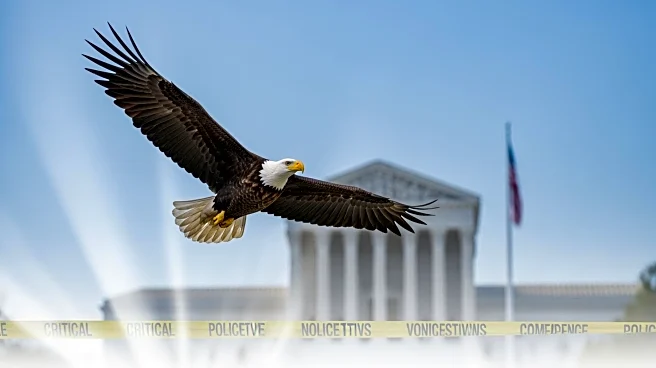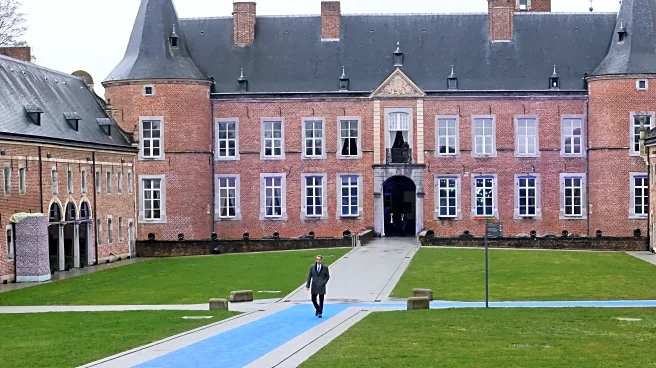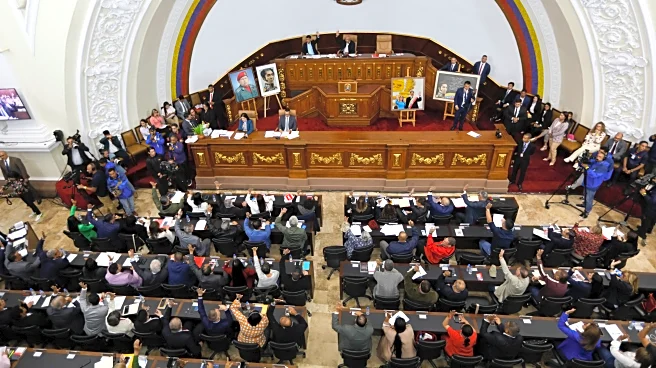What's Happening?
President Trump's administration has filed an emergency appeal with the Supreme Court to overturn lower court rulings that block the deployment of National Guard troops to Chicago. The appeal argues that the lower court's
decision improperly limits the President's authority and endangers federal personnel and property. The administration claims that the deployment is necessary to address risks to federal agents amid protests over immigration enforcement. The case raises constitutional questions about the use of federal military personnel in civilian law enforcement and the balance of power between federal and state authorities.
Why It's Important?
This legal battle highlights the ongoing tension between federal authority and state sovereignty, particularly in the context of immigration enforcement and public safety. The Supreme Court's decision could set a precedent for the President's power to deploy military resources within the U.S., potentially affecting future federal interventions in states. The case also underscores the broader debate over the role of the military in domestic affairs and the limits of executive power. The outcome could influence how similar situations are handled in other states and impact the relationship between federal and state governments.
What's Next?
The Supreme Court has requested responses from Illinois and Chicago officials before making a decision. The ruling could have significant implications for federal-state relations and the President's authority to use military resources domestically. Depending on the outcome, there may be further legal challenges or legislative actions to clarify the scope of executive power in similar situations. The case is likely to attract attention from political leaders, legal experts, and civil rights organizations, who may weigh in on the broader implications for democracy and governance.











